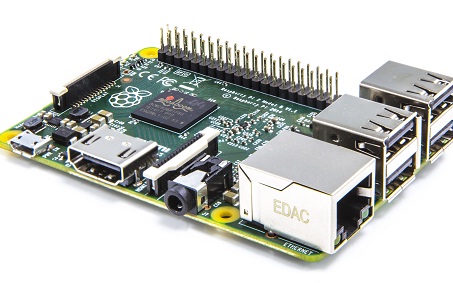Raspberry Pi 2 power crashes when exposed to xenon flash

It seems that the new Raspberry Pi 2 is susceptible to flash photography, with users complaining of the board losing power when put under the glare of a xenon tube flash -- commonly used in flash photography.
The problem was revealed in a user forum thread entitled 'Why is the PI2 camera-shy?' on raspberrypi.org.
"I have discovered that my PI2 is camera-shy! Taking its picture with a flash causes an instant power off!" wrote a user with the handle PeterO. "I've done it three times now, and same thing happens each time.
"First two times, I didn't realise what had happened, as I wasn't looking at the screen at the time and only noticed a few minutes afterwards. Third time, I did it just to watch the screen... Instant power off," wrote PeterO.

Other user community members pitched into the thread, suggesting that one or more of the board's semiconductors could be light sensitive, and that the power crash was most likely caused by a "photonic" event rather than being triggered by interference from an electro-magnetic pulse caused by the flash.
AR + VR
User mikerr pitched in on the forum, revealing that other Raspberry Pi boards, including the A, B, A+, and B+, are all immune from the "xenon death flash" effect.
Forum contributor jdb claimed to have re-created the problem, and pointed to the board's U16 SMPS (switched mode power supply) chip as the likely culprit.
Covering the U16 chip with Blu Tack fixed the issue, according to mikerr, who also said that the root of the problem could have been the factory where the boards are produced substituting an uncapped chip for the original component.
"Plastic would be opaque to xenon, so [would] prevent the issue," wrote mikerr in the forum thread.
The second generation of the popular Raspberry Pi single-board computer, featuring a 900MHz quad-core ARMv7 processor, was released on February 2, with a $35 price point.
The new model has also received a hardware upgrade that makes it ready to run a custom version of Windows 10.
Microsoft has announced that it is developing a custom version of the Windows 10 operating system, and that this will be released free of charge to the Maker community through the Windows Developer Program for IoT.